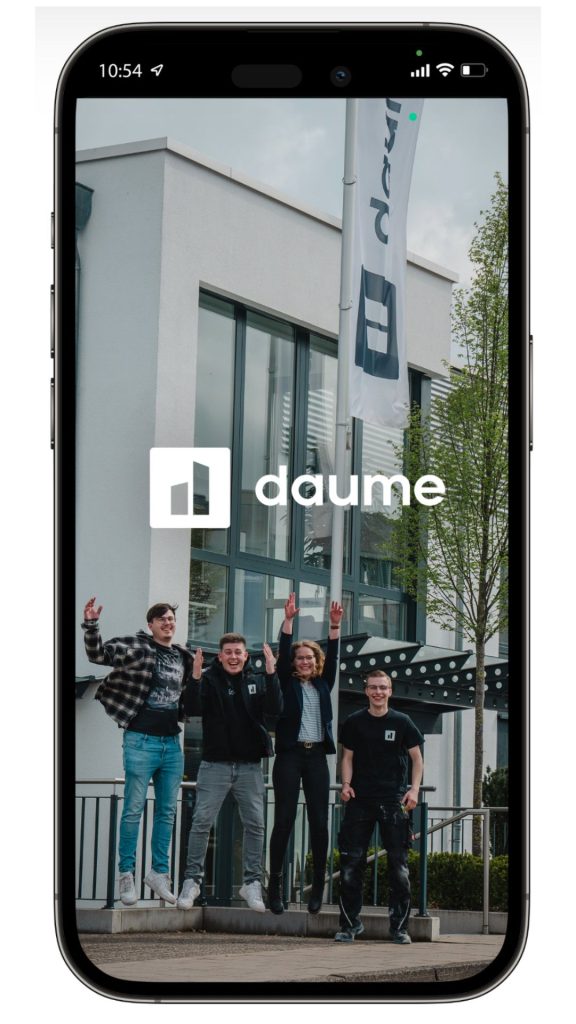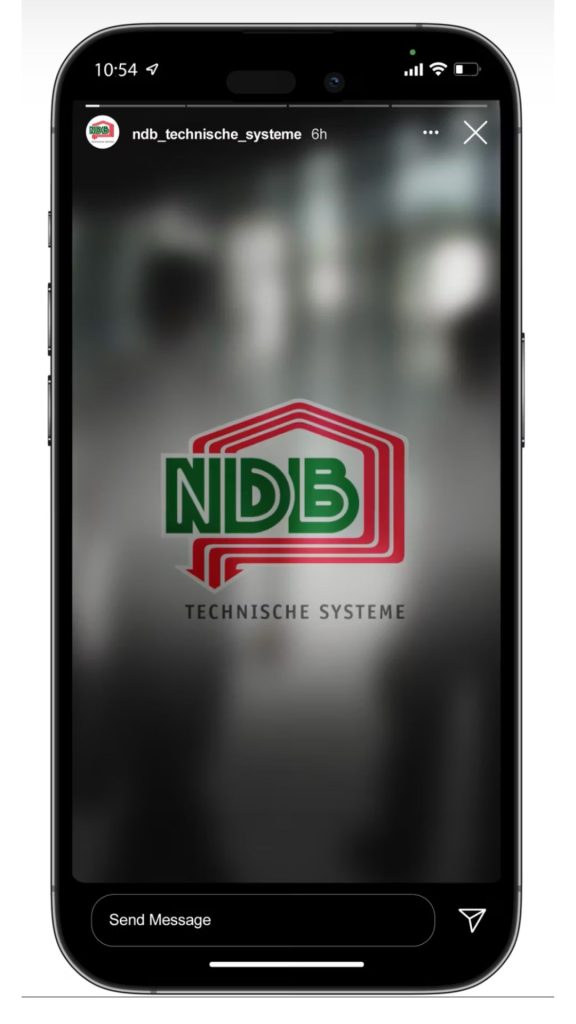How to make a real impact with B2B influencer marketing in 2025

In today’s B2B marketing landscape, you have the opportunity to inform and inspire. What better way to achieve this in 2025 than by using influencers? What has long been commonplace in B2C is also becoming a real success factor in B2B. Why? Because strong opinion leaders build trust, make complex topics tangible and reach decision-makers in a targeted manner. If you’re ready to break new ground, B2B influencer marketing can unlock huge potential for your company. Your company will enjoy greater visibility, successful leads and long-term customer relationships.
What is B2B influencer marketing?
In B2B influencer marketing, influential personalities from specific fields are recruited to communicate company content and brand messages authentically. The focus is on expertise, credibility and relevance for a specialised target group rather than reach. Typical B2B influencers are industry experts, insiders or executives who have built trusting relationships with their communities through their experience and knowledge. This often occurs via platforms such as LinkedIn, specialist blogs or webinars.
Employee influencers & thought leaders from within your own company
The role of corporate influencers is becoming increasingly important in B2B. Employees who voluntarily and strategically share updates about their day-to-day work are highly credible and act as multipliers in professional and industry circles. Consequently, companies are investing in specific programmes to train employees on LinkedIn, create guidelines, and actively involve them in their communication strategy. Combining professional competence with an authentic voice creates lasting trust.
The boundaries between influencer marketing and employer branding are becoming increasingly blurred. When your employees share insights about projects, work culture and development opportunities on platforms such as LinkedIn and Instagram, they strengthen not only your professional positioning, but also your appeal as an employer. This is particularly effective when recruiting technical specialists or young talent, as it helps you to build trust, promote identification and clearly set yourself apart from the competition.
What are B2B influencers?
B2B influencers are individuals who are highly regarded within their community as opinion leaders and experts. They target decision-makers and specialist audiences specifically, providing valuable insights and influencing purchasing decisions in a professional context. Increasingly, companies are also relying on so-called ‘employee influencers‘, who are their own employees who authentically share their expertise via professional networks and thus act as brand ambassadors.
B2C vs. B2B influencer marketing: What is the difference?
While emotions and quick impulses play a role in B2C influencer marketing, B2B requires clear information, trust and more considered decision-making processes. Products and services often require explanation, investments are long-term, and several people are usually involved in the purchasing process. Therefore, the selection of the right influencer is not primarily based on follower numbers, but on content fit, technical relevance, and professional appearance.
Strategy and planning
Before you begin, you need to set yourself a clear goal. Do you want to increase brand awareness, generate qualified leads, or boost your sales specifically? Each of these requires its own tailor-made plan. Think carefully about which platforms would work best for you and your target audience. For example, LinkedIn is good for specialist articles, YouTube is good for tutorials, and podcasts are good for interviews. Decide how often you want to communicate, in what form, and in what tone. A well-thought-out campaign structure will give you the framework you need to maintain consistency and long-term success.
Selection of & cooperation with influencers
The success of your campaign depends on the right partners. It’s not about the widest reach, but about relevance, credibility and a strong network. Look for experts who suit you in terms of both content and personal compatibility. Ideally, you should use data-driven tools to identify suitable influencers or conduct targeted manual research. Focus on building long-term relationships based on mutual respect. The greater the trust between you and the influencer, the more credible your message will be.
Content creation
Your content is at the heart of your campaign. In B2B, substance is paramount. It must be well-founded, practical and easy to understand. However, you can also entertain your audience. When executed effectively, infotainment can be an effective tool in a business context. Use valuable formats such as specialist articles, webinars, how-to videos and interviews with experts. Your goal should be to simplify complex topics and demonstrate your expertise.
Distribution and promotion
It is also important to know that content will only have the desired effect if it is seen by the right people. Focus on clever distribution, such as organically via influencer channels and company profiles, as well as paid distribution, for example through LinkedIn Ads. Consider cross-posting and multiple use: for example, you can turn a webinar into a blog article, which can then be turned into a LinkedIn post or short video clip. Always ensure that your posts are appropriate for the channel and target group in question.
Measurement of success
How well is your campaign really performing? The only way to find out is to look at the numbers. Define clear KPIs, such as reach, interactions, generated leads and conversion values. Use tools such as UTM tracking, your CRM system and platform analytics to gain a clear understanding of what is working well and where improvements can be made. This will allow you to manage your campaigns more effectively and clearly demonstrate your ROI.
Trends and future prospects
B2B influencer marketing is constantly evolving, becoming more professional, data-driven and strategic. Technological innovations, new platform features and changing user expectations are driving this transformation. Those companies that recognise these developments early on and actively leverage them gain a clear competitive advantage.
LinkedIn as a central platform for B2B influencer marketing
LinkedIn will remain the hub for B2B communication in 2025. The platform is not only used for pure content distribution, but is increasingly developing into a content and community platform.
Convincing figures:
- 97% of B2B marketers use LinkedIn for content distribution
- 89% actively generate leads through it
- LinkedIn Live and newsletter features offer new opportunities for long-term audience building
Tip: Those who regularly publish content via thought leaders and are active in discussion groups increase both their reach and trust in the brand.
AI-supported influencer selection & campaign optimisation
Artificial intelligence can now be used to identify suitable influencers. AI enables filtering not only by reach, but also by content affinity, target group quality, and conversion potential. Tools that analyse engagement rates, sentiment, posting frequency and industry proximity can provide valuable support. AI solutions also enable the dynamic adjustment of campaign content and budgets in real time.
Relevance over reach: The era of niche influencers
Micro and niche influencers are becoming increasingly important in the B2B context. This is because decision-makers do not necessarily follow big names, but rather experts on an equal footing. Influencers with small but highly relevant communities often achieve better KPIs, especially in terms of engagement quality, click-through rates and conversion.
Recommendation: Focus on experts with genuine industry connections and a high degree of thematic relevance rather than purely on numerical values.
Live formats & video content on the rise
Moving image content is also becoming more commonplace in B2B, particularly when products or services need to be explained. Videos have a high retention rate and convey both information and emotional brand loyalty.
Popular formats:
- LinkedIn Live Sessions with experts
- Product demos or use cases as videos
- Interviews & roundtables for thought leadership
- Video series as evergreen content on YouTube
Successful examples in B2B influencer marketing
Zufall Logistics Group
Objective:
Zufall wanted to attract new professional drivers and decided not to rely on traditional job advertisements, but instead to offer authentic insights into everyday working life. The company wanted to specifically inspire young people to take up the profession and offer them an uncomplicated way to apply.
Implementation:
A TikTok video by creator Rene (@reneschmock) showed the everyday life of a truck driver in an entertaining and realistic way. In addition, a mobile landing page with an interactive quiz was created. This combination provided an ideal basis for guiding interested parties directly into the application process.
Results:
- 1 TikTok, 1 Instagram Story, 1 Spark Ad
- 1.3 million impressions
- 10,600 link clicks
- 109 qualified leads within 5 days
Daume Group
Objective:
Daume wanted to develop a strong employer brand that would unite all parts of the company while taking into account the individual character of each location. The goal was to create a clear, credible identity that would provide internal orientation and be attractive to the outside world.
Implementation:
A unique employer branding strategy was developed through a series of joint workshops. Based on this, social media formats reflecting the group’s diversity and culture were created. Employees were also trained to create and integrate content themselves on a permanent basis.
Results:
- Joint employer value proposition
- Internal training for content creation
- Long-term visibility through targeted social media strategy

NDB technical systems
Objective:
NDB had the clear goal of attracting new trainees in the commercial sector. The focus was on developing a modern employer brand that would reach young people and inspire them to pursue skilled trades.
Implementation:
Based on a jointly developed brand model, a clear positioning was created, which was then brought to life through appropriate content formats for social media and the web. The focus was on personal insights and a realistic picture of the working environment.
Results:
- 12 pieces of content with strong everyday relevance
- Clear employer positioning
- Targeted presence for training topics on social media

Novelis
Objective:
Novelis wanted to attract young people to apprenticeships and dual study programmes. To achieve this, a target group-specific employer brand was to be developed and made visible through a comprehensive social media campaign.
Implementation:
In a first step, the employer positioning was clearly tailored to the target group. Subsequently, over 30 individual content pieces were created for social media and the web, accompanied by a mobile-optimised landing page and a performance-oriented communication concept.
Results:
- Over 30 content formats for web & social media
- 730,000 impressions
- 6,300 clicks
Conclusion
B2B influencer marketing is more than just a trend. It is a strategic tool for combining expertise, trust and reach. By finding the right influencers, offering relevant content and adopting a long-term approach, brands can effectively position themselves and achieve real business impact.
Would you like to use B2B influencer marketing in a targeted manner?
Lookfamed will be happy to advise you. We will help you develop the right strategy and find the right influencers.







 Sign up
Sign up 